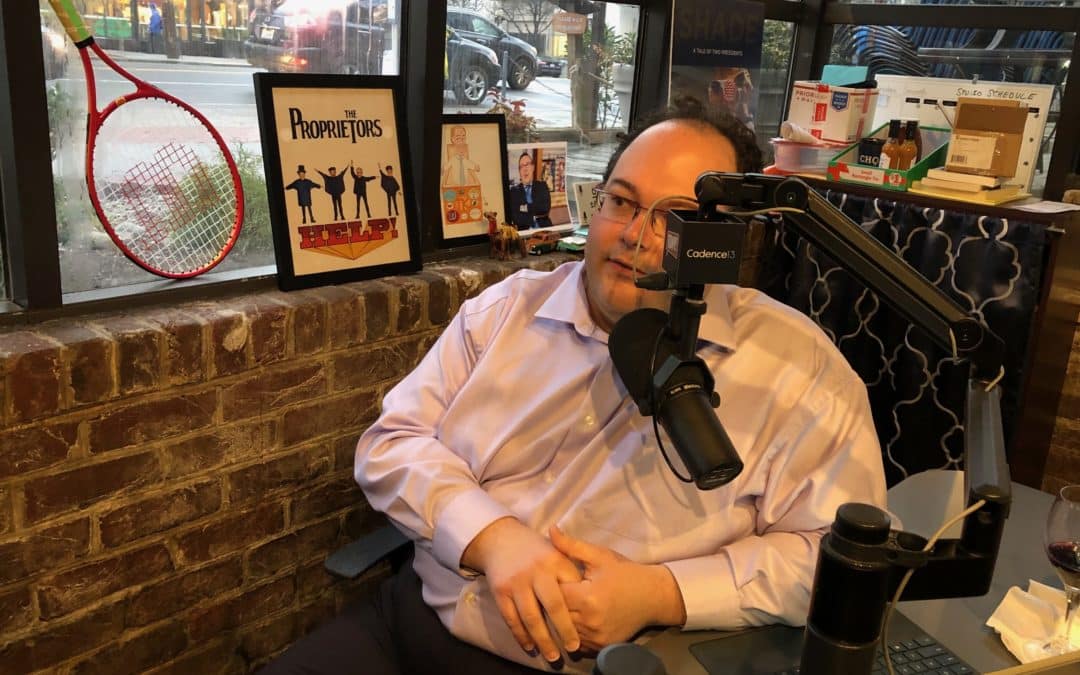Podcast (video): Play in new window | Download
In late June, the Supreme Court struck down the part of federal trademark law that prohibited the registration of “immoral or scandalous” trademarks. The case was called Iancu v. Brunetti, and it was a follow-up to the court’s Matal v. Tam ruling two years ago. In Tam, the justices unanimously ruled that the Lanham Act’s ban on disparaging trademarks was a violation of free speech rights under the First Amendment. In Brunetti, the justices used the First Amendment to strike down another ban: the one on “immoral or scandalous” trademarks.
Mr. Erik Brunetti sought to register the word mark “FUCT,” in connection with clothing. The examining attorney at the United States Patent and Trademark Office (“USPTO”) refused registration under Section 2(a) of the Lanham Act, on the basis that the mark was vulgar, and therefore “immoral” or “scandalous.” The Trademark Trial and Appeal Board (“TTAB”) upheld the examining attorney’s decision on appeal. Mr. Brunetti then appealed the TTAB’s decision to the Federal Circuit. The Federal Circuit requested additional briefing from the parties following the Supreme Court’s decision in Matal v. Tam, 137 S.Ct. 1744 (2017), which held that Section 2(a)’s prohibition on registering “disparaging” trademarks is unconstitutional under the First Amendment. In December 2017, the United States Court of Appeals for the Federal Circuit issued a unanimous ruling declaring unconstitutional Section 2(a) of the Lanham Act, 15 U.S.C. § 1052(a), which prohibits the registration of “immoral” or “scandalous” trademarks.
The issue came down to a key part of First Amendment law: is the regulation in question viewpoint-neutral? The First Amendment protects speech despite the viewpoint it expresses, so the government (in this case, the USPTO) cannot pick winners and losers because it likes some views better than others.
Writing for a 6-3 majority, Justice Elena Kagan concluded that is exactly what the USPTO had been doing in applying the “immoral or scandalous” ban codified in the Lanham Act. Kagan examined the USPTO’s treatment of trademarks related to drugs: trademark examiners rejected “YOU CAN’T SPELL HEALTHCARE WITHOUT THC,” “MARIJUANA COLA,” and “KO KANE.” But they approved “D.A.R.E. TO RESIST DRUGS AND VIOLENCE” and “SAY NO TO DRUGS—REALITY IS THE BEST TRIP IN LIFE.” According to the Court, those decisions are clearly viewpoint-based and, therefore, unconstitutional, even if they are “understandable” because of the trademarks’ potential to offend.
Justice Sotomayor in her dissenting opinion—anticipate a rush to register trademarks containing arguably vulgar, profane, or obscene words and images, with the PTO now powerless to say no. She’s right! This ruling means that trademark registrations are open to any type of language. It’s the Wild West in the dusty, old town of TrademarkVille. What do you want to say about your product? Does your product’s branding have a viewpoint? Registrations at the USPTO now must be open to all, even those marks that will offend. Intellectual Property law seemed to be one area that was stuck in the past, even as technology keeps changing at a rapid pace. Not anymore. Bring on all the words that you may need to cover your ears to hear. They’re registrable.
Here is a lightly-edited transcript of the video blog:
Trademark law generally does not change. In the last two years, however, trademark law has had a couple of really big changes, thanks to the Supreme Court. Several 6-3 decisions have basically allowed, well, some bolder language to come in and well, maybe some trademarks that don’t actually treat people very well to be registered.
How did this happen? A couple of years ago, a band called The Slants wanted to register the band name as trademark. It was rejected. Why? Because “The Slants” was deemed to be words that disparaged people. Specifically, it was deemed to be an ethnic slur and a trademark under the statute that disparaged people was not allowed to be registered. That went to the supreme court two years ago and that was ruled to be an impermissible rejection of a trademark application. Why? Because the First Amendment to the U.S. Constitution requires that a law related to speech be content neutral. And in this particular case, the prohibition on disparaging trademarks was deemed not to be content neutral.
The government could determine whether or not a trademark was disparaging or in this particular case where people of a certain ethnicity were trying to recapture a term. It’s very complex and ultimately it was a very messy six to three decision, well, almost two years to the day.
The other portion of what could be deemed “immoral and scandalous” and therefore also not registerable as a trademark was struck down by the Supreme Court, also. That was because an apparel designer was filing for the word FUCT. You certainly can see that, for apparel, there are different kind of viewpoints that, that could express anything that was an immoral or scandalous matter. That would not be allowed to register as a trademark. That provision of trademark law was struck down.
So now if your trademark says almost anything you want, as long as we’re not really going to be deceptive about it or we’re not going to falsely make a connection with another registered mark, that’s perfectly fine. We’ve now gone into a much bigger, wild, wild west with trademark law. And so, go ahead. Let’s file the vulgar trademarks. Let’s file a anything that might have some kind of disparaging notion.
I don’t really want you to express that viewpoint, but the Supreme Court said that those particular aspects are now allowed, and now it feels a little more like the wild, wild west. Feel free to express your viewpoints in your trademarks.


Trackbacks/Pingbacks